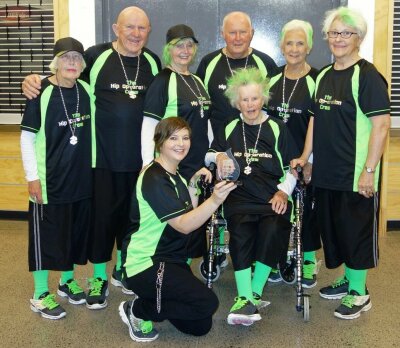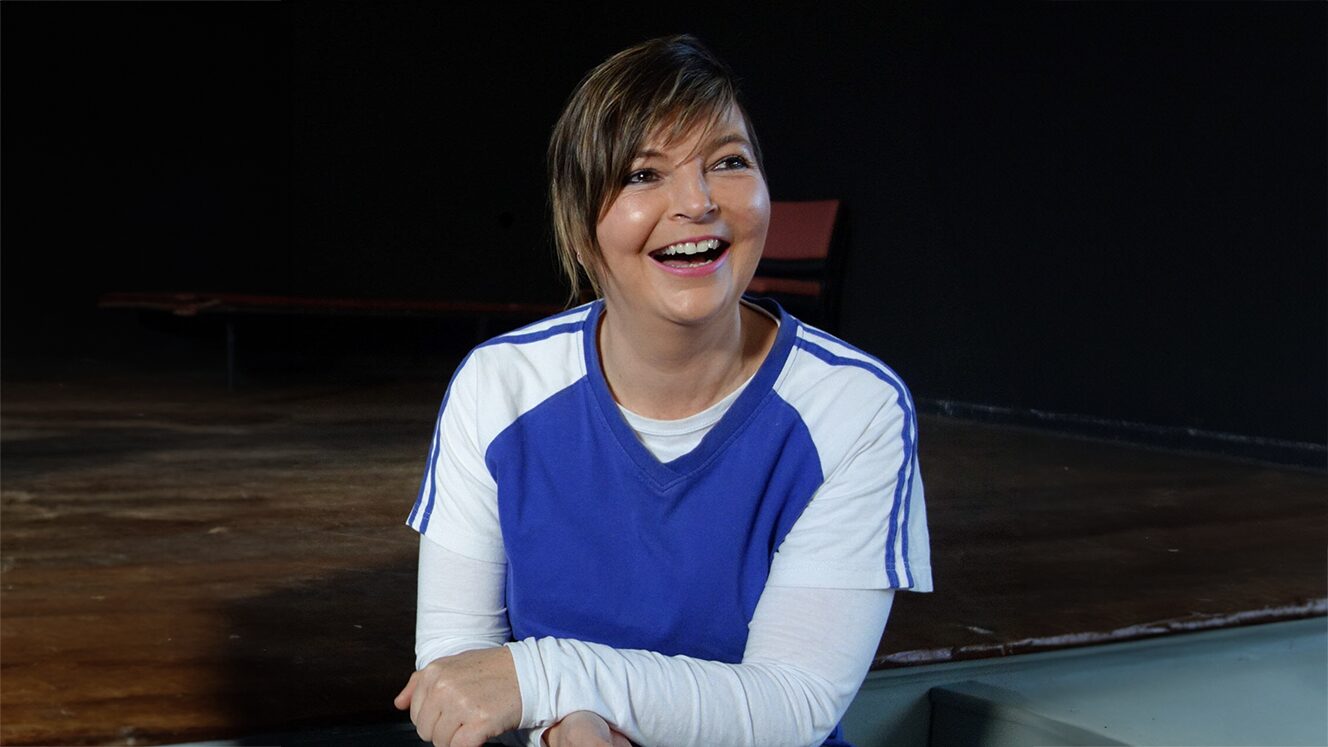In a world often rife with ageist stereotypes and misconceptions about the capabilities of older adults, one person’s determination and vision is challenging perceptions. The story of Billie Jordan’s Hip Op-eration Crew is not just about dance; it’s a testament to the power of breaking barriers, challenging societal norms, and pursuing passions regardless of age or limitations.
Billie is speaking at our upcoming Women’s Leadership Symposium on Thursday 2nd May. We asked Billie to share a snapshot of her story in this enlightening Q&A.
Can you talk about the specific moment that inspired you to create the Hip Op-eration crew?
"I wanted to change perceptions and challenge every stereotypical view people had of older adults."
Billie: A member of the public made a comment that they didn’t expect the senior citizens in the Flash Mob dance group I had established, to perform a dance routine from memory – that they’d need an instructor facing them, doing the dance moves, which they could then follow. I was so saddened by the fact people had such low expectations of senior citizens. There were other comments about expecting older adults to not want to try anything new which would put them outside their comfort zone and not having goals they wanted to achieve.
It seemed the general view was that when you age you should just follow a set path of decline followed by death rather than one of growth and living life to the fullest.
I wanted to change perceptions and challenge every stereotypical view people had of older adults. So, I established the Hip Op-eration Crew, a hip hop dance group consisting of 27 people aged from 68 to 98 years old. I had many dancers in their 90’s as well as about five members with dementia. I gave them the goal to be good enough to perform at the World Hip Hop Championships in Las Vegas in just eight months’ time. I deliberately chose a dance genre which you don’t see older adults do.

Source: tedxauckland.com
Have you faced any ageism or discrimination related to the group’s concept? If so, how do you respond to such challenges?
Billie: Yes – a lot. I was so shocked at the comments we’d receive from people of all ages. People said my dancers should just go home and die as there were too many people in the world already and aging shouldn’t be something we support or celebrate. I also had people who believed people with dementia shouldn’t be in my dance group as they’d just be too difficult to teach and would bring down the overall standard of my dance group’s performance.
These ageist comments just spurred me on even more and I was determined to prove them wrong. I often held dance rehearsals in the street and performances on the roads and in other public places so people were exposed to seeing older adults learning and living their lives. I also ensured the people with dementia were central to the dance choreography I created and found new ways to teach them so they remembered the dance routines. Every moment was an opportunity to change society’s view of older adults. Instead of having older adults living behind the venetian blinds in retirement villages, I wanted people to see them dancing in the streets.
Looking back, what have been the biggest challenges and rewards of leading the Hip Op-eration crew?
"...the biggest challenges were changing my dancer’s perception of themselves and their own abilities....That challenge, and seeing them change, was the biggest reward for me."
Billie: I think the biggest challenges were changing my dancer’s perception of themselves and their own abilities. They had received so many debilitating and ageist comments by the time I met them that they actually believed they couldn’t learn something completely different and excel at it. So, my first challenge was undoing this damage so they could believe in their own capabilities again. That challenge, and seeing them change, was the biggest reward for me.
The next biggest challenge was the logistics of managing a large dance group. Many didn’t have email or voicemail, so if I needed to change the time for a rehearsal, I would have to print out the new time and date on A4 sized paper and drive to at least a dozen different houses and physically give it to them or tape it to their fridge.
When travelling to performances in Auckland we’d use the public bus system and I would have to split up the group into different buses which were often 15 minutes apart and hope they’d all get off at the right stop. Sometimes we’d lose someone along the way and they’d get on the wrong bus or fail to get off at the right stop. This meant changing the dance choreography at the last minute as we’d have someone missing from their spot – this had its own set of challenges.
What advice would you give to others who want to pursue their passions regardless of age or limitations?
Billie: Surround yourself with a supportive group of people, as you’re likely to get criticism for challenging stereotypical views. Often other people who face prejudices of other kinds will be your best supporters – as they know what discrimination feels like. Keep your distance from anyone who puts you down and wants to limit you – otherwise what they say could start to seep into your own self-belief.
Ask yourself, if I was a healthy fit 15-year-old, what would be expected from me? Expect the same for yourself.
Don’t miss the opportunity to hear first-hand as Billie shares more of her insights at the upcoming Women’s Leadership Symposium. Register now to be inspired by her incredible story!

